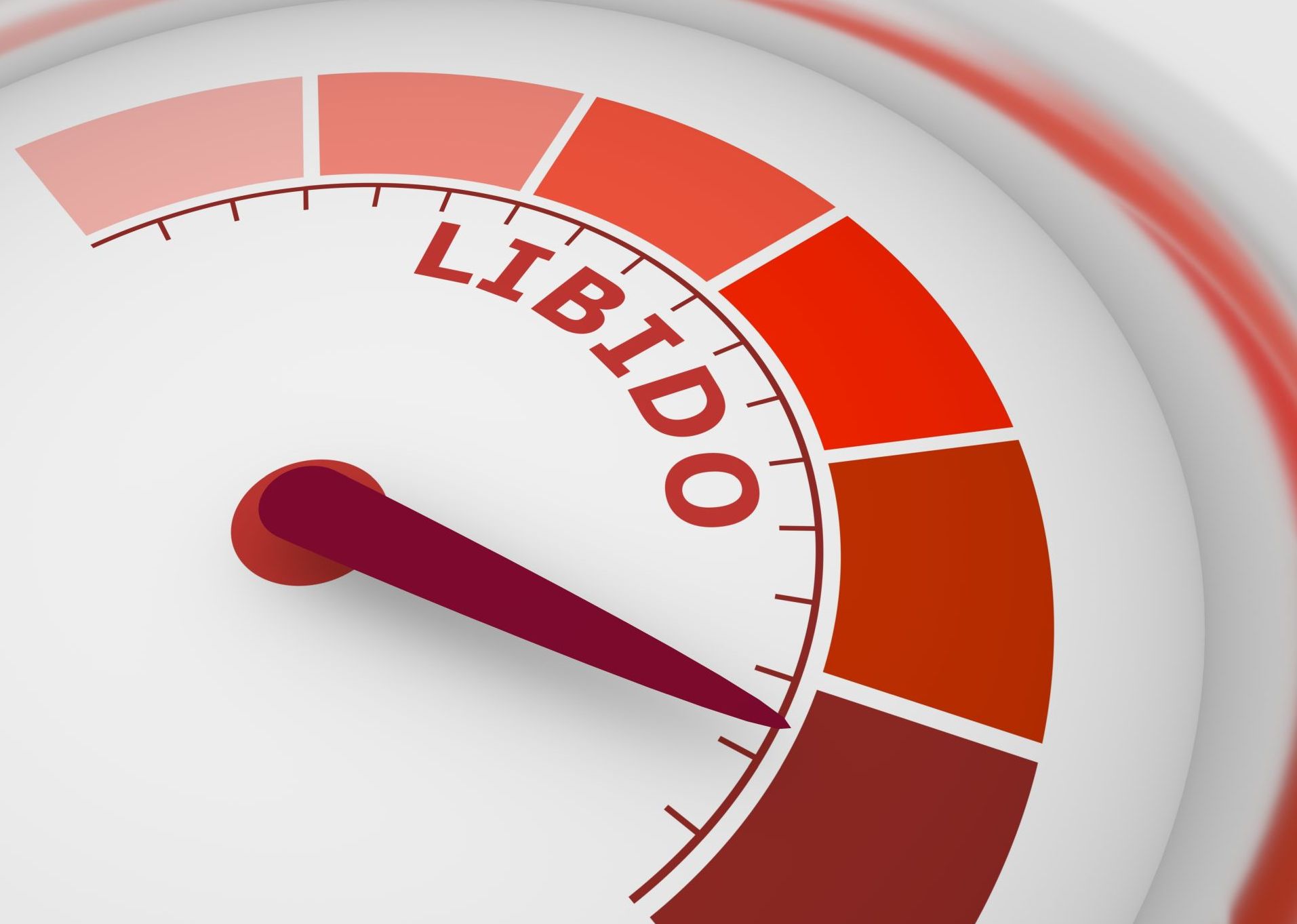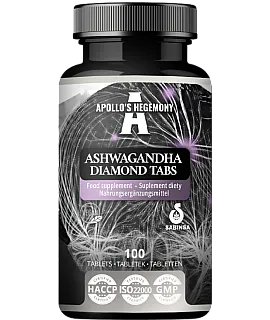Ashwagandha - an effective supplement for stress

Stress is an integral part of life, although it often accompanies us in excess. That's why many people turn to natural supplements such as Ashwagandha to maintain a sense of well-being. Ashwagandha is a powerful herb that has been used in Ayurvedic medicine for centuries. Its effects have been studied extensively, and research has shown that Ashwagandha supplementation can be an effective way to reduce stress levels and improve overall health. In this article, we'll examine what Ashwagandha is and how it can help people deal with stress in their daily lives.
- What is Ashwagandha?
- Action and properties of Ashwagandha
- Ashwagandha dosage
- Are there any side effects or contraindications?
- Summary
What is Ashwagandha?
Ashwagandha(Withania somnifera) is a "medicinal plant" native to India and other South Asian countries. It is also commonly referred to as Indian ginseng, although botanically it is not related to ginseng. The reference to ginseng is due to its adaptogenic effect, meaning that it helps the body cope with stress and adapt to changing conditions.
It has been used for centuries in Ayurveda (the Indian medicinal tradition) to relieve various ailments. Ashwagandha contains active substances with calming and anti-inflammatory effects, as well as supporting immune and endocrine function. These are mainly steroidal alkaloids and lactones, collectively known as vitanolides. Ashwagandha's Polish name is Vitania sluggish, which correlates with the fact that it is often used to calm and improve sleep quality.
Ashwagandha is available in a variety of forms, such as capsules, tablets, powder or dried cut root for preparing an infusion. It can be used both orally and externally. However, it is important to keep in mind that not all claims about its effects have been scientifically validated, and some may be exaggerated. Let's take a look at information from scientific publications (of which, fortunately, there are quite a few) to reliably assess Ashwagandha's effects on humans.
Action and properties of Ashwagandha
Ashwagandha is a popular choice for alleviating ailments related to the body's reaction to stress. Ashwagandha 's effects are multifunctional. Numerous pharmacological studies have shown that Vitania sluggishness has anti-inflammatory, antioxidant, antitumor, anti-anxiety and immunomodulatory effects. It has also been shown to affect neurological, endocrine and cardiovascular activity. Traditionally, it was also used to enhance muscle strength and endurance. Today, it is still favored by athletes, but for different reasons, as its effects on athletic conditioning and muscularity are not well documented.
Adaptogenic effects and effects on stress
As for stress reduction, in addition to improving users' subjective relationships, it also helps balance the body's cortisol levels, which can reduce chronic stress levels. Simultaneous confirmation of anti-stress effects in psychological questionnaires and biochemical blood tests is strong support for effectiveness. Researchers suggest that Ashwagandha's anti-stress effect is due to its effect on the HPA (hypothalamic-pituitary-adrenal) axis.
Controlling stress is very beneficial in managing overall health and well-being, and when taken regularly, Ashwagandha does this exceptionally well. Some clinical studies have shown that as stress was reduced while taking Ashwagandha, parameters such as CRP levels, blood pressure and heart rate also improved.
Effects on mood and overall brain health
In terms of effects on mood, Ashwagandha has been shown to effectively alleviate anxiety disorders and sometimes even reduce depressive symptoms. This is believed to be due to its ability to regulate hormones involved in mood regulation, such as serotonin and GABA. For mild mood disorders that don't require pharmacological intervention, many people just try Ashwagandha. An additional benefit (and for some people, even the most important) is the positive effect on sleep quality.
There are also indications of a neuroprotective effect and the possibility of a slight improvement in memory. The entire profile of action makes Ashwagandha a nootropic without remorse.
How does Ashwagandha affect hormones?
Some studies have shown a slight increase in testosterone levels in men (but not in women) as a result of Ashwagandha use - for example, in a 60-day study with the use of 240 mg of Ashwagandha extract daily, although it was found to be statistically insignificant. This effect co-occurred with cortisol lowering. The two results are linked because testosterone and cortisol compete for substrates, and also chronic stress negatively impacts sex hormone metabolism and inhibits procreative ability. By reducing stress (psychologically and biochemically), better sex hormone concentrations can be achieved. Some studies have also shown an increase in LH and FSH (pituitary hormones that regulate steroid and spermatogenesis).
Ashwagandha dosage
The dosage depends on the form of the supplement you choose. The most popular Ashwagandha extracts are standardized at 5-7% vitanolides, and such supplements are usually used at a dose in the range of 250-1000 mg per day. Using 500 mg of the extract once a day is usually considered the optimum, but using such a dose twice a day (morning and evening) is also common practice. For weaker 1.5% vitanolides extracts, proportionately higher doses should be used to obtain a similar amount of vitanolides.
Ashwagandha can be taken in the morning or in the evening, and it depends entirely on your expectations for the effects of supplementation - whether it is to help more with mood and stress reduction during the day, or to improve sleep and evening relaxation.
For best results, Ashwagandha capsules should be taken daily, preferably for a minimum of one month. The effects may gradually increase even during the first 3 months of use.
Are there any side effects or contraindications?
Overall, Ashwagandha is very well tolerated and there are no common side effects. If Ashwagandha side effects do occur, they may include:
- gastrointestinal disorders - some people may experience diarrhea, bloating or other digestive disorders after taking Ashwagandha. In such cases, it is worth experimenting with the timing of taking the supplement, trying, for example, to swallow the capsule just before a meal;
- sleep disturbances - occasionally there are paradoxical effects such as difficulty sleeping when taken in the evening or excessive sluggishness when taken in the morning, which is due to individual conditions;
- allergic reactions - some people may experience allergy symptoms, such as itching or rashes. This risk applies to almost all herbs and supplements and is due solely to personal conditions.
Ashwagandha stimulates immune system function, so a potential contraindication is the use of immunosuppressive drugs. Also, caution should be exercised when using drugs that inhibit the nervous system.
Summary
All the effects described above make Ashwagandha an excellent choice for promoting overall health and well-being - both physical and mental!
Sources:
- Salve J, Pate S, Debnath K, Langade D. Adaptogenic and Anxiolytic Effects of Ashwagandha Root Extract in Healthy Adults: A Double-blind, Randomized, Placebo-controlled Clinical Study. Cureus. 2019 Dec 25;11(12):e6466.
- Gopukumar K, Thanawala S, Somepalli V, Rao TSS, Thamatam VB, Chauhan S. Efficacy and Safety of Ashwagandha Root Extract on Cognitive Functions in Healthy, Stressed Adults: A Randomized, Double-Blind, Placebo-Controlled Study. Evid Based Complement Alternat Med. 2021 Nov 30;2021:8254344.
- Lopresti AL, Smith SJ, Malvi H, Kodgule R. An investigation into the stress-relieving and pharmacological actions of an ashwagandha (Withania somnifera) extract: A randomized, double-blind, placebo-controlled study. Medicine (Baltimore). 2019 Sep;98(37):e17186.
- Speers AB, Cabey KA, Soumyanath A, Wright KM. Effects of Withania somnifera (Ashwagandha) on Stress and the Stress-Related Neuropsychiatric Disorders Anxiety, Depression, and Insomnia. Curr Neuropharmacol. 2021;19(9):1468-1495.
 ⮜ Previous article
⮜ Previous article
Eurycoma Longjack - properties of Malaysian ginseng
 Next article ⮞
Next article ⮞


